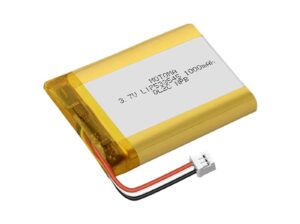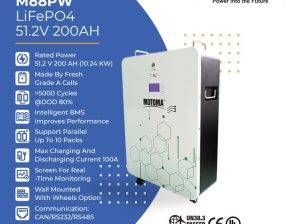What is a Ground Fault Protector? Why it is important for Solar Power Systems?
Ground fault protection is a crucial aspect of any electrical system, especially in solar power systems where high DC voltage and current levels are involved. A ground fault occurs when current flows through an unintended path, such as through the body of a person or animal, causing an electrical shock or fire hazard. In this blog post, we will discuss what a ground fault protector is and its role in a solar power system.
What is a Ground Fault Protector?
A ground fault protector, also known as a ground fault circuit interrupter (GFCI), is a device that detects ground faults and interrupts the flow of current to prevent electrical shock or fire hazard. The device compares the current flowing through the hot wire to the current flowing through the neutral wire. If the current in the hot wire does not match the current in the neutral wire, it indicates that current is flowing through an unintended path, such as through a person’s body. The ground fault protector then interrupts the flow of current, preventing electrical shock or fire hazard.
The Role of Ground Fault Protection in Solar Power Systems
Solar power systems typically consist of solar panels, inverters, batteries, and other components. Ground fault protection is essential in these systems because they involve high DC voltage and current levels that can pose a significant safety hazard if not properly protected.
- Protection for Solar Panels
Solar panels generate DC voltage and current, which can pose a safety hazard if not properly grounded. Ground fault protection devices can be installed on the solar panels to detect any ground faults and interrupt the flow of current to prevent electrical shock or fire hazard.
- Protection for Inverters
Inverters are used to convert DC voltage from solar panels to AC voltage for use in homes and businesses. Ground fault protection devices can be installed on inverters to detect any ground faults and interrupt the flow of current to prevent electrical shock or fire hazard.
- Protection for Batteries
Batteries used in solar power systems also require ground fault protection. This is because batteries can generate high DC voltage and current levels, which can pose a safety hazard if not properly grounded. Ground fault protection devices can be installed on batteries to detect any ground faults and interrupt the flow of current to prevent electrical shock or fire hazard.
- Compliance with Electrical Codes and Standards
Ground fault protection is required by electrical codes and standards, such as the National Electrical Code (NEC), to ensure the safety of electrical systems. Solar power systems must comply with these codes and standards to ensure the safety of the system and its users.
Conclusion
Ground fault protection is an essential aspect of any electrical system, especially in solar power systems where high DC voltage and current levels are involved. A ground fault protector, also known as a ground fault circuit interrupter (GFCI), is a device that detects ground faults and interrupts the flow of current to prevent electrical shock or fire hazard. In solar power systems, ground fault protection devices can be installed on solar panels, inverters, and batteries to ensure the safety of the system and its users. Compliance with electrical codes and standards is also essential to ensure the safety of the system and its users.
Comments (3)
You must be logged in to post a comment.



[…] providing a safe and stable reference point for electrical currents to flow through, the earthing system ensures that any ground faults are quickly detected and safely directed away from people and […]
[…] a renewable resource, so we can never run out of it. As we face the challenges of climate change, solar energy will become increasingly important as a clean, sustainable power […]
[…] with local codes and regulations. Any external power sources should be isolated from the system. A grounding wire should also be connected to the system […]